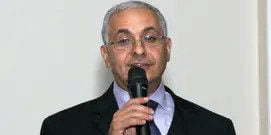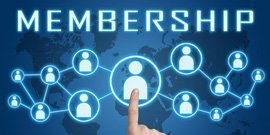
Gary Lesser
What is the future of the legal profession? There have been many opinions offered, but some answers are emerging. Generally speaking, tectonic shifts take a while before significant changes are realized, but technology is speeding up those processes. The bottom line: the legal profession will be different and, in many ways, better going forward.
To a great extent, the legal profession looks the same as it has for decades: billable hours at big firms, stress and challenges of running a small firm, trying to bring in business, and sometimes that feeling of satisfaction after helping a particular client. But the signs of change are all around us, and a good collective effort by law schools, bar leaders, and firm leaders can help blaze the best path forward.
The biggest and perhaps most important shift to watch is the growing use and importance of “law clinics” and other experiential learning at law schools. Requiring experiential education before graduation and merging it with the overall school experience is the formula for success. I’m happy to report that many law schools in Florida excel in this approach, but more work is needed to make sure law students are provided these opportunities for growth and training. A greater, more consistent approach to experiential education will help law students become better lawyers.
The second important shift is greater mentorship for new lawyers, especially those in smaller firms. The Bar’s Special Committee on Mentoring, led by Co-Chairs Katherine Hurst Miller and Zack Zuroweste, has built a practical mentoring program from the ground up focused on milestones, a real curriculum for regular substantive conversations between mentors and mentees. The program is titled, “Counsel to Counsel,” and will greatly help new lawyers transition into the full-time practice of law. Mentors play such an important role in the development of any professional and making this a staple of a newer lawyer’s career will be very beneficial. Florida’s new mentoring program will be a national leader, and will officially launch at Annual Convention in June.
We will also see significant changes in greater access to legal services in the future. For the last several decades, we have seen a decrease in the number of people hiring lawyers for important legal matters, such as buying a house or having a properly executed will, leading to disastrous outcomes for many who eschew representation. At the same time, we have seen an increase of people “going on their own” and appearing pro se in an increasing number of matters in our court system.
The Bar’s Special Committee on Greater Access to Legal Services, led by Co-Chairs Jay Kim and Wayne Smith, worked very hard on these issues all year long. We recently presented key recommendations to the Florida Supreme Court to make it easier and more consistent for pro se litigants to navigate the court system, and lessen the strain on judges and clerks of court. We also pushed ideas to support Florida legal aid organizations, including making it possible to become a certified legal intern earlier and more easily in law school. Finally, we made recommendations to increase overall accessibility and affordability of legal services, with a big emphasis on prepaid legal service plans. These plans guarantee revenue for law firms and provide affordable and accessible legal representation for those who might otherwise go unrepresented.
We focused our work on pragmatic, realistic recommendations to provide greater access to legal services. These challenges are solvable in the long term with the independent legal profession and the independent judicial system at the front and center of those efforts.
Finally, looking ahead, the legal profession — like the rest of the world — will have to figure out how to work with artificial intelligence. There have been significant advances with ChatGPT, and the rapid acceleration of AI abilities and plug ins. Already, people are using this tool to write sonnets, take (and pass) a mock bar exam, and much more. Like the first rock tool and the first search engine, this is a new “tool” to use, and there is nothing for The Florida Bar to do except hope that people use these innovations responsibly and guide lawyers on any ethical implications.
At the end of the day, the legal profession helps our clients, with our ethics rules and professionalism leading the way. If we continue to be forward-thinking and “on the ground” dealing with challenges, there will be many lawyers helping many clients in the future.
Vol. 97, No. 3 May/June 2023 Pg 4 | Gary Lesser | President’s Page https://www.floridabar.org/the-florida-bar-journal/pondering-the-future-of-the-legal-profession/?ct=t(EMAIL_CAMPAIGN_6_15_2023)&mc_cid=9879feaac5&mc_eid=40bbe98c1e
![Florida Lawyers Network - [FLN]](https://floridalawyersnetwork.com/wp-content/uploads/2021/02/FLN_logo.jpg)










